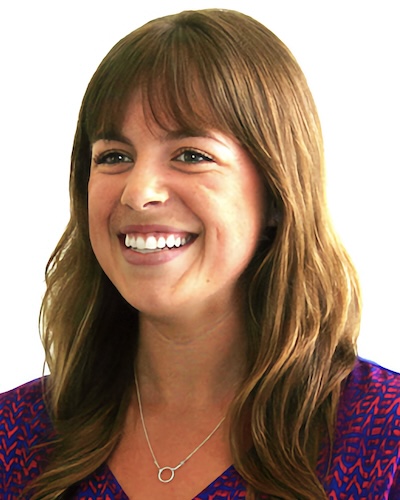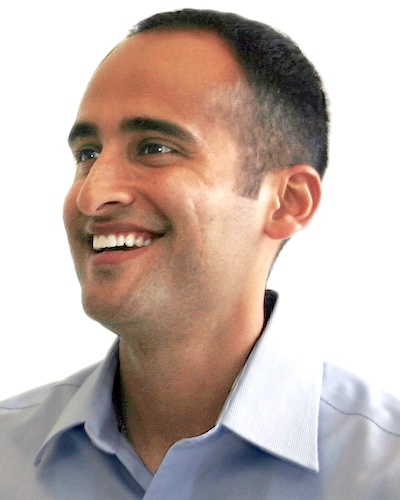Student Blog
What are OS/OT?

Splinting 101 ⟩
October 23, 2012, by Paula
Classes What are OS/OT?
This week, the focus for our Adult Rehabilitation lecture and laboratory experiences is on the human hand. Honestly, the hand has always been an intimidating part of the body to me. It is vital to so many occupations and one small change to function can cause such a global influence in the daily routines of the individual. I realize that it sounds obvious but if you stop and think about what you do not use your hands for throughout each day, I am sure that you cannot think of many. After some wonderful presentations from our peers covering various medical conditions which have a large impact on hand function (some of which included Carpal Tunnel Syndrome, Dupuytren’s Disease, Skier’s Thumb, and Peripheral Nerve Injury), we were able to dabble in fabrication of orthoses (more commonly referred to as thermoplastic splints). This was a great experience as a student, not having to worry about making a splint perfectly for a patient who may be in pain or may have a limited range of motion or motor control. It was also not without frustration. This process takes the right TLC in order to form the plastic material properly to the skin’s surface without being too snug, without having pressure points or indentations, and without causing discomfort. We had the opportunity to make three different splints: a volar wrist cock-up splint which may be useful to an individual with Carpel Tunnel Syndrome, a thumb Spica splint which may be useful for an individual who has sustained a scaphoid fracture, and a resting hand splint which can be useful to an individual who experiences symptoms of arthritis. Although we are nowhere near the ability or practice level of one who would be suitable to use these skills in practice, it was a great experience to be able to try out this process.
⋯

Jack of all trades ⟩
October 19, 2012, by Alisa
Fieldwork What are OS/OT?
Last week I had my full week of fieldwork. It was nice to take a break from class, but I do like being in class and seeing my fellow students! Oh, boy, I can’t believe we’ve been in the same cohort for a year now. Time quickly flies. I’m sure you can attest to this. So, fieldwork started slower at the beginning of the week, but gradually gained momentum by the end of the week. I feel that I’ve been fortunate to have liked all my fieldwork experiences so far, and I feel that it won’t make it easier for me to decide which area I want to specialize in. Maybe, I’ll specialize in being a jack of all trades. Imagine that on a business card.
By the end of the week, I had my own clients and was writing billable notes! I’m doing fieldwork at a forensic treatment agency, and I work hand-in-hand with the Employment/Education Specialist. I have helped clients with writing a resume, filling out an application, searching for jobs online, and advising them on transferring to a 4-year university. At the end of the day, I felt that I’ve helped my clients to progress toward their employment/education goals.
I also got to meet a lot of people during the full week. There were about a dozen Social Work interns, 4 OT interns, and 2 Homeboy Industries interns (imagine having to fight for the computers or how crowded the meetings would be!). My site really fosters students’ learning and growth. I really felt that everyone works together as a team here. It’s multidisciplinary, yet unifying since we work for the clients and have their best interests in mind. By the end of the week, the office had a pizza and pastry party, and my life was content. Some of the other highlights during the week were successfully coordinating a recreational activity for clients and alumni to go to a taping of The Price is Right as a fundraiser, participating in the Mindfulness group and Moral Reconation Group, and getting ramen during lunch in Little Toyko. I enjoyed the experiences.
I’m thankful for the opportunities given to me, all the people I’ve come across, all the support from my professors, family, and friends. Without them, there would be no me. Until next time, have a great weekend!
⋯

Feeling a little overwhelmed? ⟩
October 18, 2012, by Ricky
Fieldwork School/Life Balance What are OS/OT?
So I was looking at my calendar the other day. I got a lotta things on my plate right now. I am a full-time student, I have a part-time internship, I have a part-time job, and I’m planning a wedding. It also doesn’t help that I live in the Inland Empire, go to school in LA, intern in Whittier, and my fiancée lives in Bellflower. Each day is different and I have had to get creative with my commute to save time and money. But you know how they say, “there’s always gonna be someone who has it worse than you do.” Some people in my class have it pretty rough too. I know this woman who is a mother of 3 and commutes from South Orange County. The life of a grad student is no joke. I get angry when people look at me as if to think “oh, your life is cake,” when I tell them I’m a student. “Trust me, I’d much rather have a 9-5 schedule, buddy,” is what I’m thinking, haha. But anyhow, it begs the question, “why do we do it?” Well, as for me, it’s because I believe in OT. Each fieldwork experience, I meet individuals whose lives have been improved because of OT. They tell me themselves. Like the lady at the rehab hospital who leaned over to me during her OT session and said that in her eyes, her therapists were angels. Or all the parents at the SI clinic who keep telling me that their little one wasn’t able to do this or that, until he/she had started OT. This stuff changes lives. That’s my motivation. I want to be the best OT I can and help as many people as possible, but even if I just help one person in the profound manner that I have seen at fieldwork, that would be worth it.
I want to give a shout-out to the guy I met at the OTAC conference, who said he reads this blog to stay motivated as he completes his prereqs to get into OT school. Bro, I’ve been there, and that can be just as rough (or more). Trying to get the classes is a feat in itself. I’m sure many of you prospective students are juggling jobs, parenthood, and a whole variety of responsibilities. To all of you, stay up and keep at it. I am pretty busy right now, but I don’t regret it one bit. Being here feels right . . . like I’m supposed to be here. I love me some OT.
I say we all pat ourselves on the back.
⋯

‘Real’ life as an OT ⟩
October 17, 2012, by Kendra
Fieldwork What are OS/OT?
Last week was our full week of fieldwork, and while difficult and overwhelming at times, I always find these full weeks invigorating and a well-timed reminder of why I’m going into occupational therapy at all. While in school our lives are determined by case studies, readings, and exams. Life between September and December depends on being able to stay afloat, manage the stress load, and make the grade. Essentially, each fall and spring our life is completely consumed with being a student.
What is especially exciting during these full week immersions, is the ability to play the part of worker, wife, mother, housekeeper, cook, and experience what life will be like outside of school!
When I was in theater school my life consisted of auditions and memorizing monologues for comedy or Shakespeare classes, and I thrived. But when I graduated and was released into the wild world of acting I felt unprepared and was disappointed by the stark contrast between school and the big bad real world. For the longest time I shook my fist at the establishment that trained me for helping me become a better artist but never preparing me for the business and self-promotion aspect that is just as important, if not more, to establishing a career as an actor. Basically no one ever told me what daily life would be like.
This is why experiences like last week are so very valuable, not just in gaining clinical experience, but in having the chance each semester to try on the role of pediatric OT, acute inpatient OT, and mental health OT. We can see how well we fit (or don’t fit) into the daily grind of working in each setting. We can learn first hand how work effects our relationships, coping skills and leisure time. We experience what the stress of one setting is like compared to others and build not just skills but a realistic understanding of what the job will be like.
So as I transition back to my role of stressed out student, I feel refreshed and confident knowing that all this hard work is leading me to a fulfilling and inspiring lifetime in occupational therapy.
⋯

What’s OT? ⟩
October 4, 2012, by Ricky
What are OS/OT?
Let’s face it. Occupational Therapy can be challenging to define. OT does so much for so many people, and it’s tough to describe it all in just a few words. Although it retains some key elements, my definition seems to be influenced almost every time I hear a fresh rendition (and that happens quite often). It’s almost like an unfinished work art . . . well not really; maybe I’m just a perfectionist, hehe. Anyhow, since I do hear some really good ones quite often, I have decided that I will be sharing them with ya’ll, going forward. Here’s the standard, to get us started.
In its simplest terms, occupational therapists and occupational therapy assistants help people across the lifespan participate in the things they want and need to do through the therapeutic use of everyday activities (occupations) — aota.org/consumers.aspx
Occupational Therapy is a health care profession aimed at improving performance, preventing illness and disability, and promoting adaptation to life changes — chan.usc.edu/about-us/occupational-therapy
⋯





